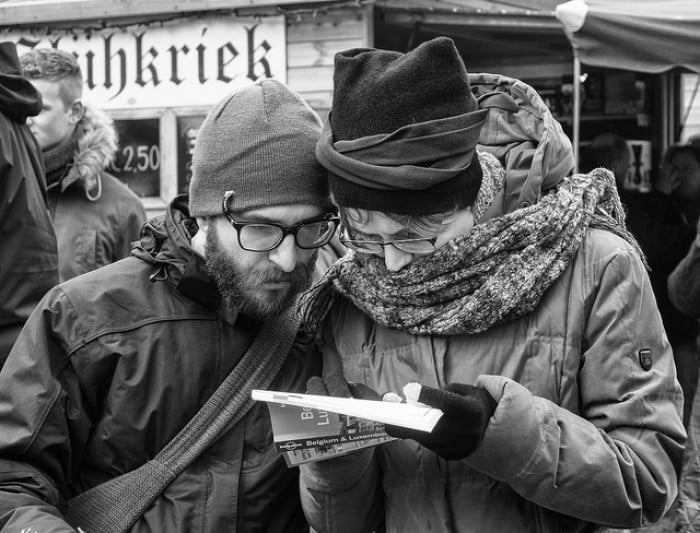
Image credit: Georgie Pauwels
Some years ago, I came across a quiz that tested my knowledge of the different customs around the world. It seemed like a good idea at that time to approach the questions with confidence; after all, how hard could it be — or so I thought. As it turned out, I was almost clueless. Travelling in big cities lets your guard down as modernised communities tend to play by the same set of rules. Descend into the heartlands, however, and it feels like you have been transported into another world, with tongues and practices almost alien to you. Why should you therefore learn to integrate yourself in communities deeply rooted in the pages of time?
The popular phrase, “When in Rome, do as the Romans do,” has an interesting origin to it. It is said that back in 387 A.D., St. Augustine, who was in Milan at that time, noticed that the Church there did not fast on Saturdays like the one in Rome. Upon consulting the matter with the Bishop of Milan, St. Ambrose, he simply responded, “Follow the custom of the Church where you are.” This was paraphrased through the centuries, resulting in what you and I know all too well today. Interesting factoid aside, there are relevant applications to be derived as far as religious sensitivity goes in many countries today.
Take, for instance, the practice of the Jewish Shabbat (Sabbath) which takes place every Saturday in Israel: 4 concepts directly impact a traveller’s stay — no working, no switching on and off of electricity, no travelling in vehicles, and no cooking. While many establishments like museums and restaurants will be closed, along with a significant reduction of traffic —most notably public transport—, it remains an interesting experience not just to observe it yourself, as is required, but to also appreciate how Jewish families use the day to recharge their mind, body, and soul. At Shabbat’s end, typically on Saturday evenings, remember to wish them Shavua Toa, or have a good week. Also note that during the Shabbat, elevators stop at every floor in accordance of the law of the land.
Local religion is not the only thing you should be well-informed of, customs related to eating is just as important; you would not like to be subjected to awkward stares when you are eating and not having a clue why. In India, where eating from one’s hand is practised, locals are particular, and for good reason; the right hand is strictly for eating, because the left is historically used to wiping your bottom — you can see where they are coming from now. In addition, it is also taboo to have your lips touch other people’s food and drinks. For instance, when sharing a chapatti, be sure to break it with your hands instead of directly taking a bite out of it and passing it along. Travelling often hinges on the kindness of locals, and you do not want to lose unnecessary brownie points out of ignorance.
Understanding one’s customs even goes as far as punctuality, but not in the way you would expect. In most places, when one is invited to a guest’s house for a meal, it is often polite to arrive on time as a sign of respect. However, in several Latino countries including Spain, it is preferable to be 15 to 30 minutes late, as going on the dot is often perceived as a sign of being “too eager” for a meal, and you will most likely catch the host unprepared.
Customs can also be observed in mundane everyday life, from mannerisms on board Japanese public transport to raising a toast to your Russian friends — these are embodiments of the unquantifiable diversity that populates the earth, and to be a traveller without knowing about how the place you are headed to operates is foolish at best. It is like ignoring the “No Footwear” sign on a friend’s house because you leave your shoes on in your own home; when you enter someone’s abode, you follow their rules, and travel is no different.
What irks me is the spate of revolting events over the past few years, most notably that one incident where ignorant tourists defiled the sacredness of a certain place just because they thought they could import their own cultures and therefore do whatever they want in foreign lands (think Mount Kinabalu). Travelling is a humbling experience where whatever privilege that you have in your own country is stripped away, leaving you socially naked to the community of which you are not a part of. How will you respond then? Will you be a sore thumb, or will you be a chameleon?






